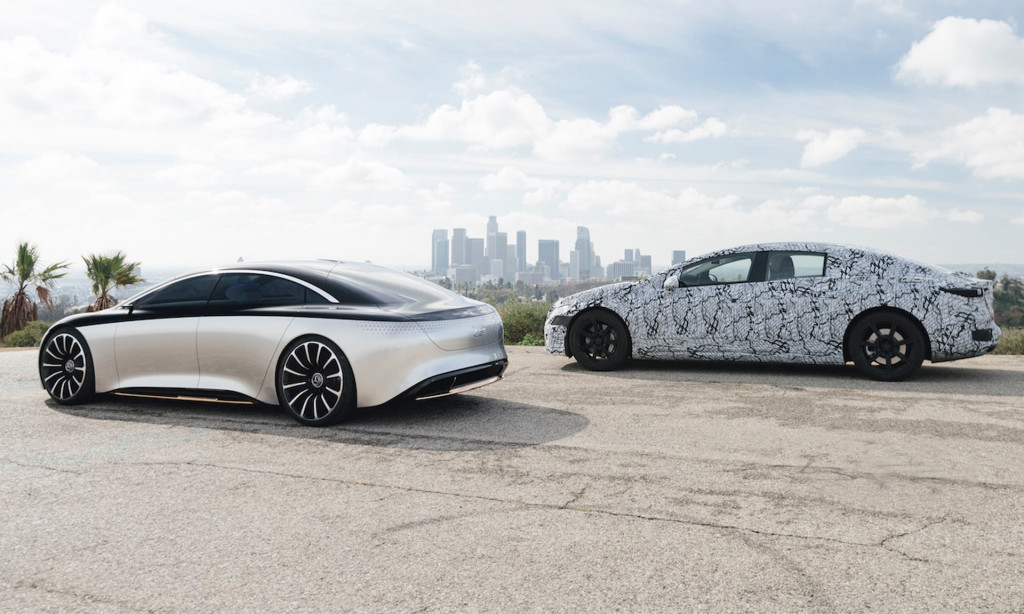Mercedes-Benz will source batteries from Chinese firm CATL for its upcoming EQS electric car.
Scheduled to launch in certain markets next year, the electric luxury sedan is targeting a range of 435 miles, as measured on the European WLTP testing cycle.
It's unlikely that will equate to more than 400 miles on the tougher U.S. EPA testing cycles. Given previous results from Mercedes-Benz and other German automakers, it might equate to something closer to 350 miles.
"Through its strategic partnership with CATL, Mercedes-Benz will advance its development of current and future best-in-class lithium-ion batteries," CATL said in a press release announcing the partnership.
The EQS—and other Mercedes passenger cars—will use both battery cells and cell modules from CATL. The Chinese firm said it will also supply "entire battery systems" for Mercedes vans.
Mercedes parent Daimler is following a different approach than the other German automakers—using commodity cells but setting up plants with its own direct oversight to assemble packs.
2021 Mercedes-Benz EQS prototype and Vision EQS concept
Daimler in June said it would establish a "global network" of nine battery factories at seven locations in Europe, North America, and Asia, primarily managed by battery-making subsidiary Deutsche Accumotive.
Setting up a supply chain in Europe has been an important part of that. Last year, the automaker announced a $230 million investment to add battery-production capacity in the Polish town of Jawor, which is already home to a Mercedes engine factory.
That’s somewhat different than the approach of Volkswagen, which has negotiated contracts with four global suppliers—including CATL—to supply it locally.
Daimler's battery supply chain will support the launch of 10 new electric cars by 2022 under the Mercedes EQ sub-brand, with other all-electric and hybrid models expected from the main Mercedes-Benz brand and Mercedes-AMG performance sub-brand.












